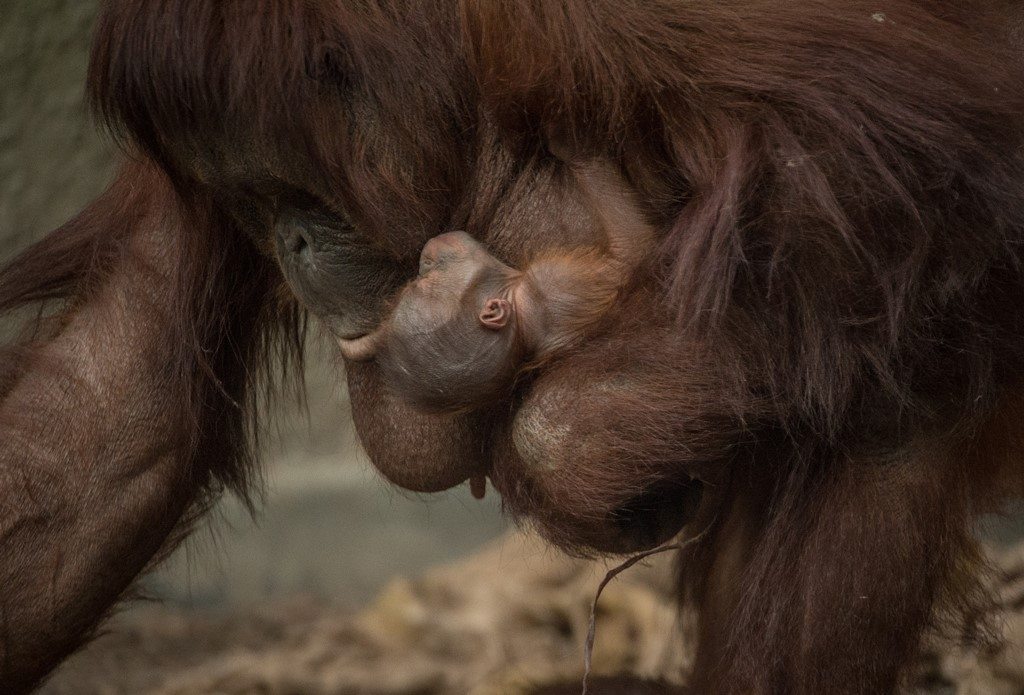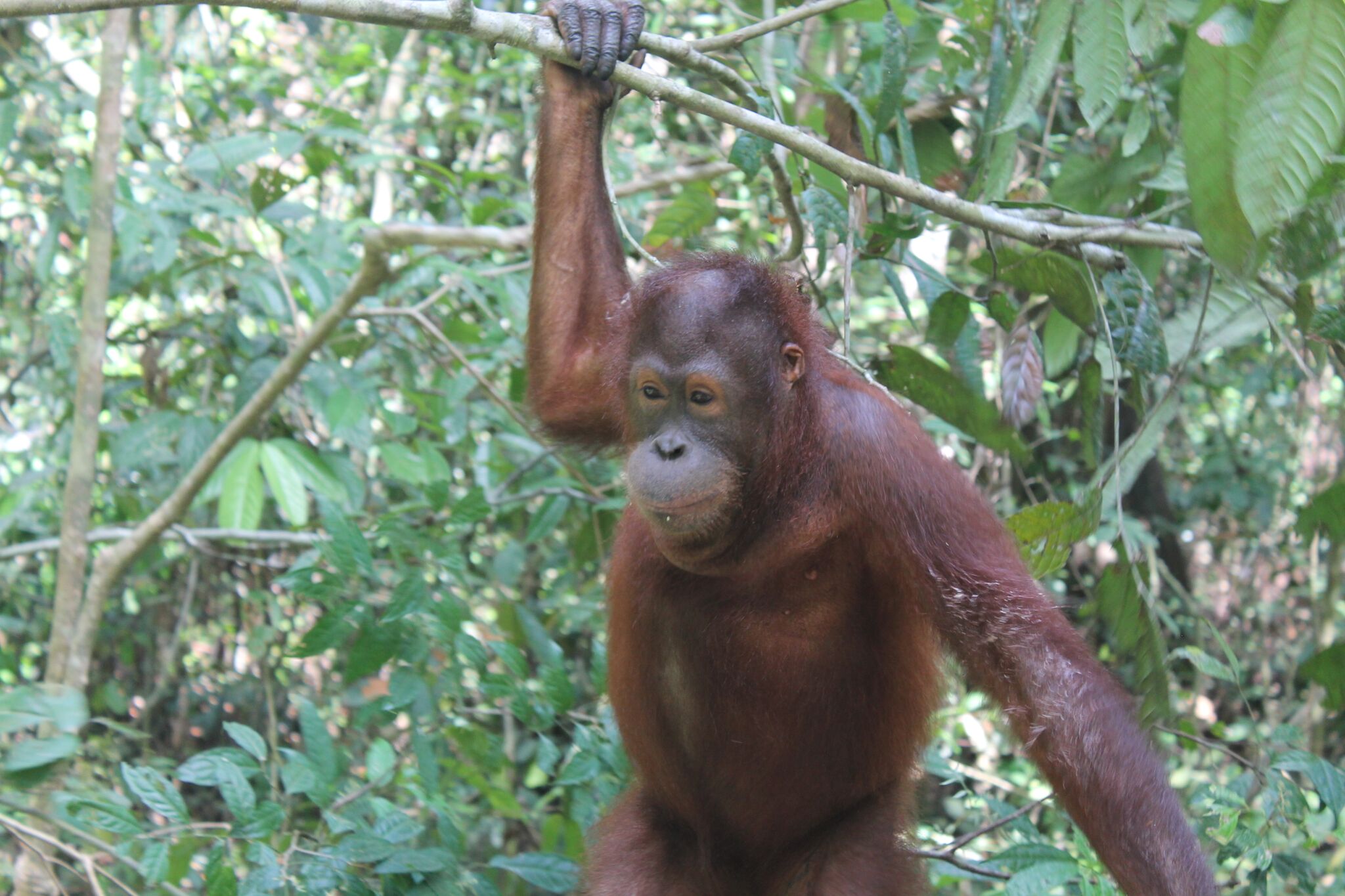In 2016, scientists officially announced Bornean orangutans as ‘Critically Endangered’, making the birth at the zoo extra special. Chester Zoo plays a vital role in helping save wildlife from extinction through conservation breeding programmes; which are becoming more and more important in the survival of threatened species.

Chester Zoo’s curator of mammals, Tim Rowlands, said:
“Bornean orangutan numbers are plummeting at a frightening rate. A major threat to the survival of these magnificent creatures is the unsustainable oil palm industry which is having a devastating effect on the forests where they live. They are also the victims of habitat loss and illegal hunting.
“Those who are responsible for their decline have pushed them to the very edge of existence – and if the rate of loss continues, they could very well be extinct in the next few decades.
It’s therefore absolutely vital that we have a sustainable population of Bornean orangutans in zoos and every addition to the European Endangered Species Breeding Programme is so, so important.
“It’s also imperative that we continue to tackle the excessive deforestation in Borneo and show people everywhere that they too can make a difference to the long-term survival of orangutans. Simple everyday choices, such as making sure your product purchases from the supermarket contain only sustainably sourced palm oil, can have a massive impact.”
It has been proven that the number of Bornean orangutans will decline by about 80% between 1950 and 2025. To put that into perspective – an 80% decline is like losing four out of five people you know! Over the past 40 years, a total of 17.7million hectares of forest has been destroyed in Borneo, mainly due to make way for oil palm plantations. Half of which used to be prime orangutan habitat.
It’s predicted that a further 15 million hectares of forest will be cleared and converted to plantations by 2025! This isn’t the only threat this incredible species is facing; it’s being hunted for its meat and to stop crops from being raided.
We’ve been working with our partners, HUTAN – Kinabatangan orangutan conservation programme for over 10 years to protect the forests and wildlife of the Kinabatangan region of Sabah, Malaysian Borneo. Our partnership has grown over the years and despite the challenges that remain in the field, we continue to work hard to help make a difference.
We won’t stand back; now is the time to act for orangutans.

